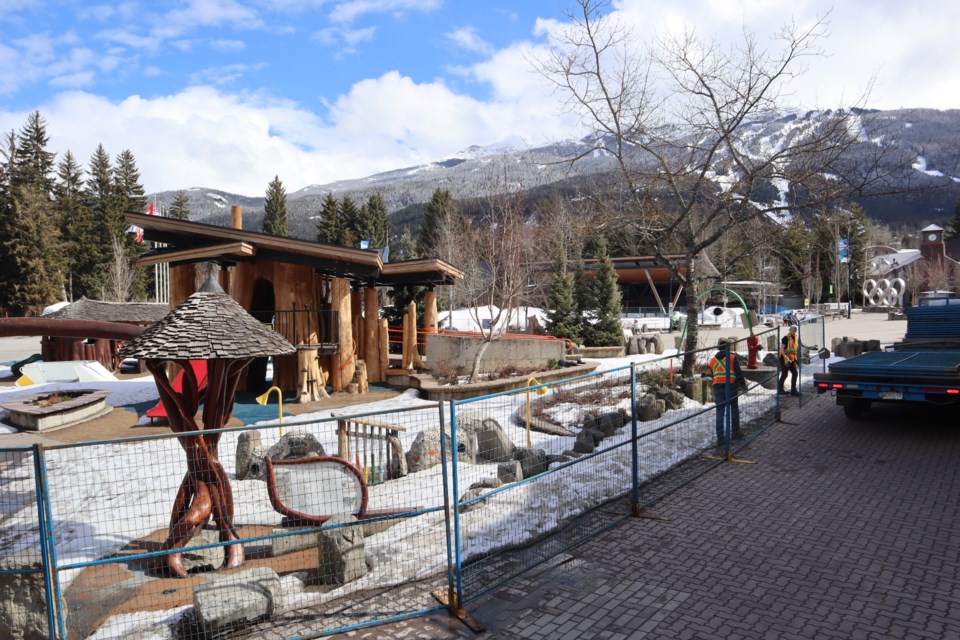I suppose I should start with the obvious disclaimer and say it’s not actually COVID’s birthday. The first known case of the virus was detected in China in December 2019.
I also don’t consider it an occasion worth celebrating—if COVID were a person I’d be throwing its birthday invitation in the trash and giving its gift to charity.
But as I kicked around topics for this week’s Opening Remarks, it dawned on me that this week marks a very surreal two-year anniversary.
It has been two years since COVID was officially declared a pandemic—on March 11, 2020—and two years since it really hit home in B.C. and North America.
It was on March 11, 2020 that the National Basketball Association suspended its season—the first real sign of the seriousness to come—and on March 14, Vail Resorts announced it would close all of its North American resorts, Whistler Blackcomb included.
Looking back at the pages of Pique from March 2020 puts a pit in my stomach. Somehow it feels like it’s been both a decade and a day.
There are a few standout moments from March 2020 that will stick with me for as long as I live.
Saturday, March 14, sitting at home and reading news of the mountain’s closure, and realizing that I couldn’t just sit still—I had to be reporting on it, even though it was my day off.
I grabbed my recorder and my notebook and headed for the village, where I interviewed strangers on the Stroll about the insanity enveloping us.
Tuesday, March 17—two years ago to the day of this article’s publication—walking the Village Stroll and finding it almost completely empty on a beautiful, sunny St. Patrick’s Day (“eerie,” was the word everyone kept using to describe the Village in those first weeks of the pandemic).
Later coming across two municipal workers fencing off the playground at Whistler Olympic Plaza, and wondering if I’d ever seen anything so symbolically devoid of hope.
Then returning to my car in the mostly empty Marketplace parking lot, and seeing a woman doing her best (and failing) to stifle a full-on ugly cry as she walked in the direction of the liquor store. Me too, lady.
It might have been something else. But at the same time, I knew it wasn’t.
Thinking back on the weeks that followed feels like a fever dream—moving all of our operations to our respective homes, and completely re-imagining how we produce our newspaper on the fly; all public meetings moved to Zoom, and online livestreams to raise money for the food bank; friends and colleagues laid off due to sudden, drastic budget constraints; hand sanitizer and toilet paper shortages; Tiger King on Netflix.
Doubt and fear and uncertainty, and the immense weight of loss and grief we were all unceremoniously forced to shoulder together. I can still feel it now as acutely as I did then, if I try.
It would be easy to be bitter about the past two years. But to be perfectly honest, I’ve got no time or energy left for bitterness. I’ve also got no time for pandemic dramatics, armchair epidemiologists, conspiracy theorists, and political opportunists.
To put it bluntly, I’m done with bullshit.
I’m finding it’s much more rewarding to deal in hope and optimism.
With B.C.’s announcement on March 10 that masks are no longer mandatory, and that its vaccine card program will expire April 8, another milestone has been met on the long road back to “normal”—or something resembling it.
The relaxed provincial restrictions are encouraging, but more still needs to be done at the border if Whistler is to return to its former tourism powerhouse glory.
According to Tourism Whistler, restrictions that are still impacting the industry include: a mandatory vaccination requirement for federally regulated travel in Canada; a requirement for recreational travellers to be fully vaccinated to avoid quarantine and testing when entering Canada; pre-entry testing at the border for all travellers; and randomized testing at the border (among others—find more info at whistler.com/covid).
“While there has been some good progress made on the loosening of COVID-19 testing restrictions, the biggest remaining issue that the tourism industry would like to see is the removal of testing requirements for fully vaccinated travellers—as testing is both inconvenient and costly, and does create a barrier to travel to Canada from our U.S. and international markets,” said Tourism Whistler president and CEO Barrett Fisher, in an email.
(On March 17, after Pique's weekly press deadline, the federal government announced it will drop the testing requirement for fully vaccinated travellers as of April 1.)
The pandemic isn’t over, and everyone, particularly the elderly and immunocompromised, will have their own level of comfort as we navigate the coming months—but I know that a shift in strategy to one based on personal responsibility has many of us breathing a sigh of relief.
With that in mind, it’s unlikely we’ve seen the end of all restrictions forever, and I won’t be surprised if masks make a comeback in the fall.
But between our high vaccination rates, new antiviral medications for those at high risk, and a better understanding of the virus overall, I’m hopeful that a true return to normalcy is close at hand—and that none of us will find ourselves sobbing our way to the liquor store in the near future (at least not for pandemic-related reasons).





